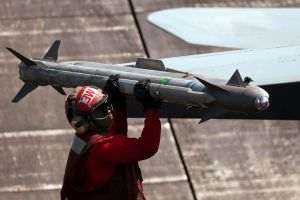Small and medium enterprises (IMM) would have to borrow at higher costs than the government, because their credibility is lower than that of the state, Mihai Bogza, board member on the Council of Foreign Investors said yesterday, at a round table intended to support the SME sector.
He said: "As long as the Romanian government borrows at spread of 5%, compared to the borrowing rate paid by the American government, it's natural that any company in Romania, which is less credible than the Romanian government, should borrow at an increasingly higher cost, as the difference of economic potential between them and the Romanian government increases".
Mihai Bogza stressed that the SME sector is important for any economy, but those companies need a strategy, that would establish priorities based on which to allocate resources.
Aurel Şaramet, the president of the National Fund for the Guarantee of SME Loans (FNGCIMM) yesterday said that the SMEs represent the "backbone" of any economy, and it's the part of the economy that gets "diseased" the most frequently.
He mentioned that three months ago, the Fund received a capitalization of 100 million Euros, which given the current state of SMEs, is enough. Aurel Şaramet said that in Portugal, the guarantee fund was capitalized with 1 billion Euros.
"If we had been capitalized with one billion Euros ourselves, then we would have been able to guarantee loans of up to 10-12 billion Euros. But the banks aren't too happy to expose themselves to major loans in a year or two", according to him.
Aurel Şaramet said that in Romania, about 14% of the total number of SMEs are financed by banks, whereas in Europe that number revolves around 70-74%, with one of the explanations being the risk that the SMEs pose.
He went on to say: "The balance to 100% is financed using the company's own funds, using private loans and the contribution of shareholders. The largest part (65%) comes from the company's own funds and from private loans".
The president of the FNGCIMM warned that SMEs present a systemic risk in the banking system: "We are capitalized (ed. note: the FNGCIMM) to bear up to 80% of the risk of non-payment, but banks don't yet have any interest to use our capabilities because for them they represent provisions, which are expenses. The problem of SMEs stems from the fact that regardless of how much we were to capitalize the fund, if the banks don't find a "mirror" where their financing sources are, then we have a problem".
In response, Mihai Bogza said that banks aren't wary of funding the SMEs and that the entrepreneurs' level of education needs to be improved.
He said: "High or low provisions are created according to a specific norm created by the NBR. We are not just talking about the fact that banks are reluctant. The weight of non-performing loans is somewhere around 14%. The SMEs are some of the favored victims of the crisis, the smaller they were, the harder they were affected, because they did not have a liquidity stock. The problem in the flaw in accessing the funding of SMEs does not come from banks. The level of preparation of entrepreneurs should be improved, that would help a lot. The dialog between those requesting loans and bankers is very difficult because of the asymmetry in the level of knowledge".
Mihai Bogza went on to say that the banks' appetite of lending to SMEs exists. He elaborated: "One reason why the SMEs don't receive funding is the discrepancy between the capital owned and the loan that they request. The majority of SMEs are microenterprises which started off with a small capital. They can't ask banks to bet on the success of the business, more than they do".
In order to support the SME sector, the Council of Foreign Investors considers that there is a need for regulations which would include the access to venture capital through the creation of venture funds, the creation of networks of business angels, the creation of a decentralized system of regional guarantee funds, for supporting and improving the access of SMEs to funding. There is also a need for the adequate capitalization of the FNGCIMM and of the FRCG and for the inclusion of entrepreneurship in higher education curriculum.




























































